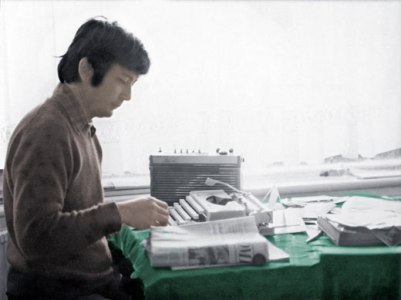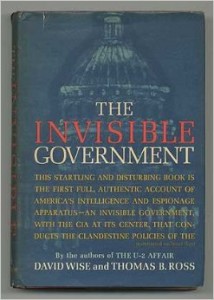When I first visited The University of California in October 1963, the most talked about book on the Berkeley campus was “The Invisible Government” by David Wise. At the time, I was reminded of President Eisenhower’s warning in January 1961, a few days before John Kennedy’s inauguration, on the dangers of the power of military industrial complex’s pervasive influence throughout America’s town halls and cities and the danger it entailed to the future of American democracy.
Over the decades, discussion about American corporate and financial power in the executive, legislative and judicial branches of government has permeated in newspaper and media outlets.
When I was teaching at Columbia University in New York, in 1986-87, the late John Bresnan, head of The Ford Foundation Jakarta Office 1969-74, lamented to me that most young men were more interested in making money in Wall Street than pursuing an academic career. This was the period when the Michael Douglas movie “Wall Street” captured the imagine of middle class Americans who wanted to make US 200.000 a year.
Fast foward to 2014. The military industrial complex has over the past 15 years transformed itself into the Military, Industrial and Financial Complex, which was initially Eisenhower’s choice of words in 1961.
America has turned into one of the industrialed world’s most unequal societies with more billionaires and millionares than parallel advanced countries in Western Europe and North America. Business and popular media continue to publish various surveys depicting the widening gap between financial and banking billionares on the one hand and the stagnating middle class on the other. The “too big to fail” American banking crises of 2007-2009 became a wake up call.
More than ever there has become awareness of the dangers of what John Le Carre, the spy novelist has termed The Deep State behind Britain’s commanding heights of London’s grip over industrial, industrial and banking industries and the cultural and social elite hold over them.
The power of the American deep state pervades over the national security agencies, the Pentagon, the CIA , Homeland Security, the State Department, the Treasury Department and Wall Street lawyers and lobbists. The seamless web of national security and many banking and finance committees in the US Congress have raised concern among right and left wing members such as Republican Rand Paul and Democrat Elizabeth Warren warned of the imperative to rein in the overwhelming power of money and business affecting the quality of American democracy.
Elected members of the House, the Senate and the Judiciary–may yet assert themselves to make American democracy really work for the struggling working class, not just for othe wine and cheesupper leisure class. President Obama has often talked about the dangers of rising inequality in America. But so far he has not commented directly about the dangers of America imperiled by the shadow government lurking behind of the town halls and cities throughout America that Eisenhower warned about.

